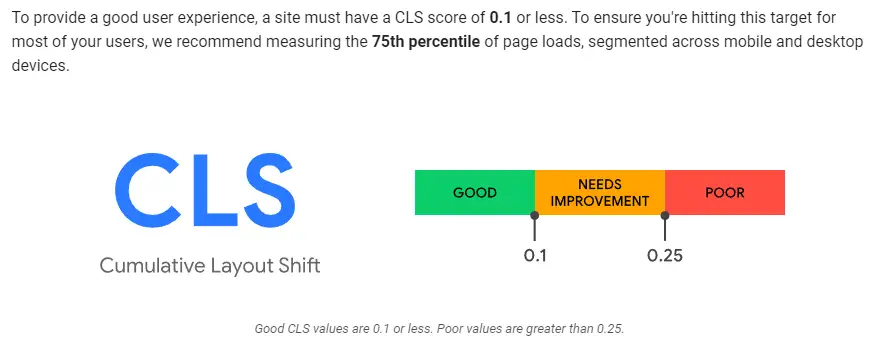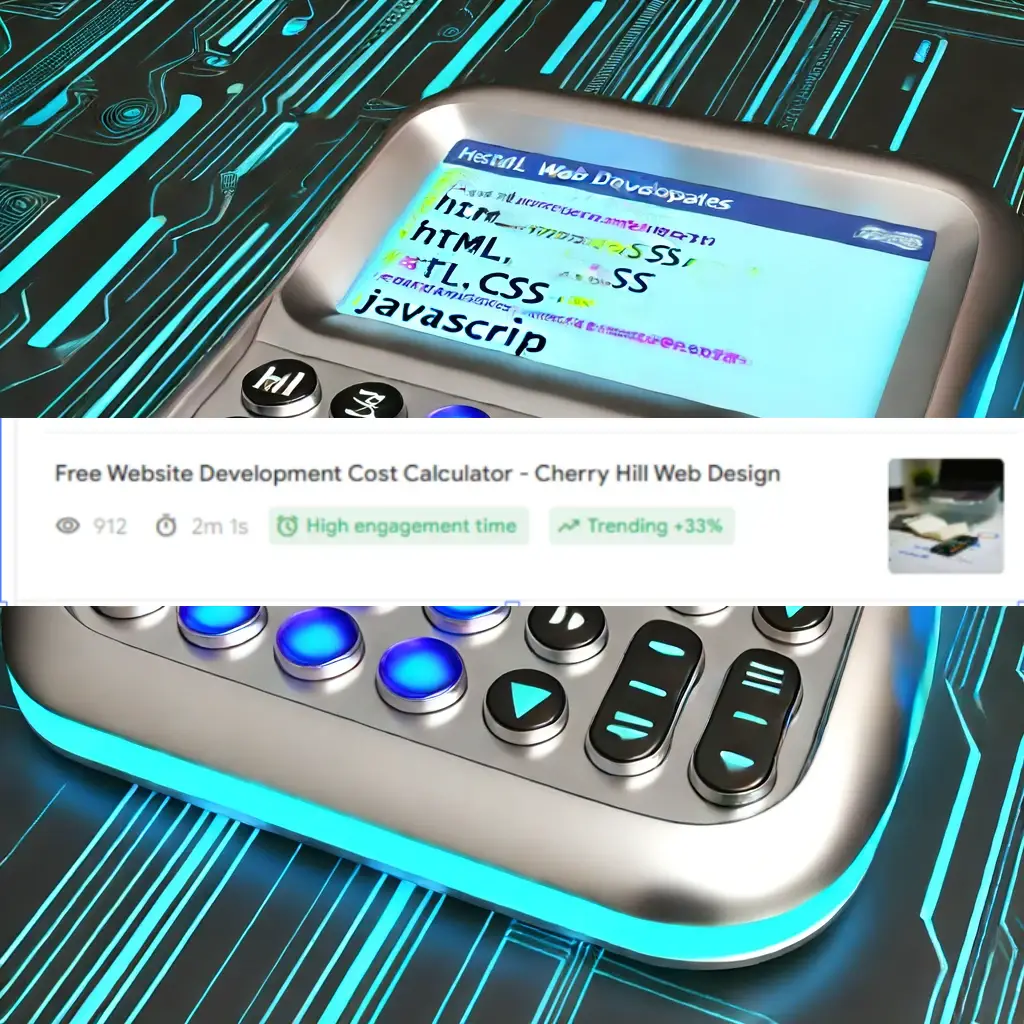
Say bye to pre-made templates and generic site builders.
Creating a custom coded website can elevate your online presence like nothing else. Unlike template-based sites, these uniquely tailored websites offer unmatched flexibility and originality. A custom coded website ensures that your site's design and functionality are exactly what you need, without being limited by pre-made templates.

The ability to customize every aspect of your site means you can provide a user experience that's specific to your goals and audience. With advanced coding, you can integrate complex features and designs that enhance your site's performance and user engagement. This level of detail helps in standing out among competitors and ensuring a smooth user journey.
Custom coded websites also provide better scalability and management. As your business grows, these sites can be easily updated and expanded without the constraints often encountered with other platforms. This means you are not only investing in your current needs but also planning smartly for future demands and technological advancements.
Key Takeaways
- Custom coded websites offer unique design and functionality.
- They provide better scalability and management for growing businesses.
- Investing in custom coding can significantly enhance your online presence.
Design and Customization

Creating a custom-coded website offers extensive control over the design and customization, ensuring both visual aesthetics and functionality align perfectly with the brand's needs. This level of flexibility is crucial for delivering a top-notch user experience across different devices.
Visual Aesthetics and Layout
Visual aesthetics and layout are important aspects of web design. With custom-coded websites, designers can craft unique and visually appealing layouts using HTML, CSS, and JavaScript. This allows for specific design requests to be precisely executed, setting the website apart.
Layouts can be crafted to highlight important landing pages, creating a memorable first impression. Versatile layout options also allow for complex design elements, including custom animations and dynamic content displays, which are not possible with pre-designed templates.
Responsive and Mobile-Friendly Design
Responsive and mobile-friendly design ensures a website looks good on all device sizes. Custom coding allows developers to fine-tune responsiveness down to every detail, ensuring the site performs well on smartphones, tablets, and desktops.
Using responsive design techniques such as flexible grids and CSS media queries, developers create a seamless user experience on any device. This is crucial for retaining visitors and reducing bounce rates, as more users access websites via mobile devices. Ensuring the site is mobile-friendly also improves SEO performance, helping the website rank better in search engines.
Customization Options and Creativity
Customization options in custom coded websites offer unparalleled creative freedom. Unlike templated alternatives, custom coding lets businesses implement intricate design features and specific functionalities tailored to their unique needs.
Developers can embed custom features like interactive elements, complex animations, or special e-commerce functionalities. This creativity extends to back-end customization, allowing for more efficient content management systems (CMS) and personalized user interfaces. Furthermore, custom CSS enables precise styling adjustments that can be updated as frequently as needed, keeping the design fresh and on-brand.
Technical Aspects

A custom-coded website requires meticulous attention to coding best practices, SEO optimization, and robust security measures. Proper development ensures high performance, while compliance with standards safeguards against vulnerabilities.
Coding and Development Best Practices
A strong foundation in coding is essential for custom web development. Following best practices helps maintain clean, efficient, and scalable code. Usability and performance are improved by following standards such as DRY (Don't Repeat Yourself) and KISS (Keep It Simple, Stupid).
Utilizing languages like JavaScript and frameworks such as React or Vue.js can boost interactivity and responsiveness. Incorporating open-source libraries also provides flexibility and cost savings. Proper documentation and versioning via tools like Git help developers track changes and collaborate effectively.
Ensuring the index.html file is properly structured is critical. This setup facilitates a smoother integration with various web hosting platforms like Webflow or WordPress.
SEO Optimization and Performance
Optimizing for SEO is crucial to elevate a website's presence in search results. Properly structuring meta tags and using clean HTML ensures search engines can index the site effectively. Integrating keywords into content without compromising readability is essential.
Page speed is another critical factor. Efficient JavaScript and minimal use of heavy libraries enhance site performance. Techniques such as lazy loading images and caching can reduce load times. Monitoring tools like Google Analytics provide insights into performance metrics, helping make data-driven adjustments.
The mobile-friendliness of a site is vital as well. Ensuring responsive design caters to various device sizes, improving user experience and SEO rankings.
Security Measures and Compliance
Security is paramount for custom websites. Implementing SSL certificates ensures data encryption, building trust with users. Regularly updating software and plugins closes vulnerabilities that could be exploited by attackers. Input validation helps prevent SQL injection and XSS attacks.
Compliance with standards such as GDPR for handling personal data is necessary. Having secure web hosting and regular security audits can identify potential risks. Utilizing firewalls and anti-malware tools adds further protection.
Proper maintenance schedules ensure all systems are up-to-date. Paying attention to security concerns and staying compliant with legal requirements helps maintain the integrity and trustworthiness of the website.
Management and Scalability

Effective management and scalability are crucial for maintaining a custom-coded website. This involves integrating robust content management systems, planning for seamless updates, and crafting a long-term growth strategy.
Content Management Systems and Integration
A well-chosen content management system (CMS) can significantly enhance a custom-coded website's usability and scalability. Integrating a CMS allows content creators to manage and update site content without developer assistance.
Popular CMS options include WordPress, Joomla, and Drupal. These platforms support countless plugins and integrations, enhancing functionality.
For instance, a well-integrated CMS can ensure the site remains responsive across different devices and browsers. This responsiveness is crucial for user experience and SEO. Developers and web designers can leverage these systems to build scalable, maintainable websites that grow with business needs.
Website Updates and Growth Strategy
Regular website updates are essential for security and performance. Developers should establish a clear maintenance plan. This includes updating software, patches, and plugins.
Beyond updates, having a growth strategy is vital. This involves planning for increased traffic, adding new features, and scaling infrastructure. Load balancing and server optimization can help handle more visitors without downtime.
A strategic approach ensures the website remains agile and capable of accommodating future growth. Collaborating with web designers to implement these strategies results in a robust and scalable website, tailored to evolving business needs.
Cost and Value Considerations

Custom-coded websites often come with higher upfront costs but can provide significant value and return on investment (ROI) by offering unique functionalities and a strong brand presence. Comparing these against website builders and WordPress highlights the specific advantages and drawbacks of each approach.
Expense Justification and ROI
Custom-coded websites inherently require a larger initial investment.
Business owners may need to hire specialized web designers and developers. This expense, though seemingly high, can be justified through the potential for a significant ROI. A custom solution allows for tailored features, which can enhance user experience and engagement.
For e-commerce and online stores, a custom-coded website can streamline operations with specific functionalities designed to meet business needs. This functionality can lead to increased sales and customer satisfaction. Additionally, custom websites can improve SEO performance, driving more traffic and potentially increasing leads and sales.
Comparison with Website Builders and WordPress
Website builders and WordPress offer a more cost-effective solution, especially for small businesses or startups with limited budgets. A website builder plan might cost $10-$30 per month for basic features. Advanced options with custom features and e-commerce functionality can go up to $50-$100 per month.
Pros and cons for website builders include low upfront costs and ease of use. They allow users to quickly set up a website without needing extensive technical knowledge. However, they may lack the flexibility and unique branding capabilities of custom-coded websites.
WordPress, while also cost-effective, offers more customization than standard website builders but still may not provide the same level of tailored functionality as a custom-coded site.
Frequently Asked Questions

Creating a custom-coded website involves several steps, costs, and decisions. Here we answer some common questions about this process to help you get started.
How do I create a custom website from scratch?
To create a custom website from scratch, you need knowledge of HTML, CSS, and JavaScript. You will start by designing the website layout and then code the front-end. For the back-end, you may use languages like PHP, Python, or Ruby. Using version control systems like Git can help manage your code.
What are the typical costs associated with developing a custom-coded website?
The cost varies widely based on complexity, design, and functionality. Basic sites may cost a few thousand dollars, while more complex websites can cost tens of thousands. Costs also include web hosting, domain registration, and developer fees. For more details, you may find this article useful.
What are some examples of custom-coded websites?
Custom-coded websites are tailored to specific needs, offering unique design and functionality. Examples include e-commerce sites like MVMT’s FAQ page, large corporate sites, and social media platforms. These sites are known for their flexibility and scalability.
Can I create a custom-coded website without any cost?
Creating a truly custom-coded website for free is challenging. While you can use free resources like tutorials, open-source tools, and code repositories, you typically need to invest in domain registration and hosting services. Additionally, you'll spend a significant amount of time on development.
How does a custom-coded website differ from one created using a website builder like Webflow?
A custom-coded website offers more flexibility and control over design and functionality compared to a website built using a tool like Webflow. Website builders provide templates and drag-and-drop features, which can limit customization. Custom-coded websites, like those using Bootstrap FAQ templates, can be tailored to specific needs and are often more scalable.






















